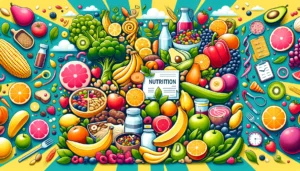Back to: Pre Vocational Studies JSS 2
Welcome to class
In our previous lesson, we learned about the potential risks associated with food purchasing. Today, we’re going to go deeper into the compelling reasons why food preservation is an essential practice, ensuring food safety, availability, and cultural significance.
Reasons for Food Preservation
Extending Shelf Life

One of the primary motivations for food preservation is to extend its shelf life. By effectively inhibiting microbial growth and slowing down chemical reactions, preservation techniques safeguard the quality and safety of food for extended periods. This is especially crucial for perishable foods with limited natural shelf lives, such as fresh produce, meat, and dairy products.
Preventing Foodborne Illness

Food preservation acts as a powerful shield against foodborne illnesses. By eliminating or significantly reducing harmful microorganisms, preservation methods like canning, freezing, and salting create a safer food environment. This is particularly vital for foods susceptible to contamination, such as meat, poultry, and seafood, minimizing the risk of foodborne outbreaks.
Maintaining Nutritional Value

Preservation techniques can go beyond extending shelf life; they can also help retain the nutritional value of food. While some methods, like drying or salting, may lead to minor nutrient losses, others, such as canning and freezing, effectively preserve vitamins, minerals, and other essential elements. This ensures that preserved foods continue to provide valuable dietary benefits.
Economic Benefits
Food preservation offers substantial economic advantages. By extending shelf life, it reduces food waste, stabilizes food prices, and ensures a consistent food supply. This, in turn, strengthens food security and supports related industries, such as food processing and distribution. Moreover, food preservation can create employment opportunities and contribute to economic growth.
Cultural and Traditional Significance
Food preservation has deeply ingrained cultural and traditional roots. Preserved foods often hold special significance in various cultures, passed down through generations and associated with specific occasions or celebrations. These traditions enrich our culinary heritage and foster a sense of connection to our ancestors.
Summary
Food preservation is a multifaceted practice that offers numerous benefits. By extending shelf life, preventing foodborne illness, maintaining nutritional value, and providing economic advantages, food preservation plays a vital role in ensuring food safety, availability, and cultural significance. Understanding the reasons behind food preservation empowers us to make informed choices about the food we consume and appreciate the efforts that go into preserving our food supply.
Questions
- What is the primary goal of food preservation?
- How does food preservation help to prevent foodborne illness?
- Can you explain the economic benefits of food preservation?
- What is the cultural significance of preserved foods?
- How does food preservation contribute to food security?
We have come to the end of today’s class. I hope you enjoyed the class!
In the next class, we shall be discussing the Food processing and preservation methods
In case you require further assistance or have any questions, feel free to ask in the comment section below, and trust us to respond as soon as possible. Well done so far and See you in the next class!
